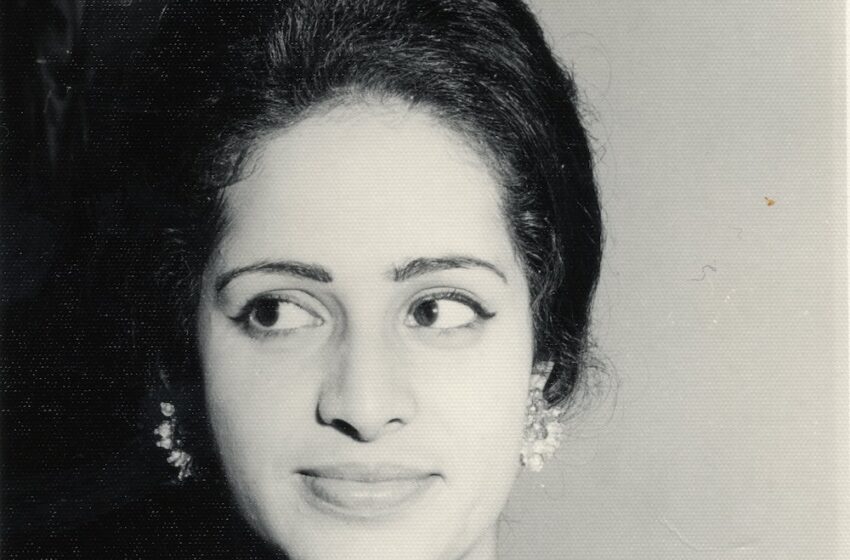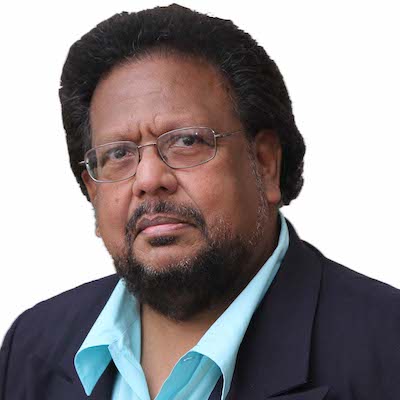Rebel with a cause: Dr. Lalita Kaul’s remarkable journey in nutrition and public health

Dr. Lalita Kaul, circa 1970s
In the inaugural episode of DesiMax’s interview series “Immigrant Chronicles with Aziz Haniffa,” Howard University’s pioneering Indian American nutritionist Dr. Lalita Kaul shares her inspiring journey.
Lalita Kaul, born in Jammu and Kashmir, came to the United States at the age of 17 when her diplomat father was posted at the Consulate General of India in New York. Her father informed her that they would be in the US for three years and suggested she pursue a diploma course during their stay in New York.
However, when her father was transferred back to India and the family was preparing to relocate, Lalita chose to remain in the US, defying her parents’ wishes. Determined not to settle for just a diploma, she insisted she would not return home without earning a degree.
Janki Ganju, a contemporary of her father in the Indian diplomatic corps in the U.S., assisted her with the college admission and visa processes. Kaul went on to earn a bachelor’s and master’s degree from Howard University in Washington, DC, and a Ph.D. in clinical nutrition and biochemistry from the University of Maryland. She eventually joined the faculty of Howard University in 1980, where she currently serves as a professor of Nutrition in the Department of Community and Family Medicine at the College of Medicine.
Throughout her nearly four-and-a-half-decade-long stellar career, Kaul has achieved numerous accomplishments, including serving on the Healthcare Reform Initiative of the 1990s, headed by then-First Lady Hillary Rodham Clinton, and authoring two acclaimed books on nutrition and obesity.
Now, in an interview with DesiMax Editor Aziz Haniffa for the new show titled “Immigrant Chronicles,” Kaul shares her story. The episode is available on YouTube.
Reflecting on her decision to not return to India with her parents, the Rockville, MD, resident says, “I certainly was a rebel. When I think back, I say, ‘Lalita, how did you do it? I hope your daughter doesn’t do the same thing.'”
Kaul recalls her early days at Howard, then a bastion of the Civil Rights movement. “This is where I met [Civil Rights icon] Martin Luther King Jr.,” she says. “I was the president of the Indian Student Association. I was very active in those days. We didn’t have Indian movies. I used to get them from the [Indian] embassy and show them, going [from] room to room. I loved Howard. I had the possibility of getting admission elsewhere, but I told Mr. Ganju, ‘This is where I want to be.'”
Kaul fondly remembers her stint with the healthcare task force. “One day, I received a call from the White House, which I initially thought was a prank,” she says. “They asked me to come on a specific date, and my university allowed me to adjust my schedule. I worked about 10-15 hours a week at the White House, addressing correspondences and providing guidelines on health issues.”
The nutritionist says that while serving at the White House she “made many friends and connections.”
She would later become a national spokesperson for the Association of Nutrition and American Dietitians, now called the National Academy of Nutrition and Health. “In that capacity, I answered questions from the media, provided guidelines, and gave interviews,” she says. “This role involved educating the public on healthy eating practices and being a reliable source of nutritional information.”
Kaul also served as a consultant to the District of Columbia’s prison system. “I noticed the prisoners were gaining weight,” she recalls. “The staff couldn’t keep refrigerators because they would give the prisoners food. I gave some suggestions and learned they could only afford to increase the meal cost by one cent. I worked on a proposal for diabetic meals, reducing bread but still providing comfort food.”
Watch the episode
The academic also speaks about her late husband Dali Patel, a cardiologist whom she describes as “unassuming and wonderful.” She says, “We met late in life after he had divorced and had three sons. He was at NIH and came to give a seminar at Howard University. We were introduced, and he showed interest in me. Despite my initial hesitation, we shared common interests in politics, shows, cuisines, and traveling. He gave me an ultimatum to decide by April 15th, and eventually, I said ‘yes.’ We were married for 20 years until he passed away. It was a happy chapter in my life.”
The couple has a daughter, a physician, who lives in Chevy Chase, MD.
One person Kaul remains very close to is her elder brother, Maharaj. Despite being separated during their formative years — Maharaj remained in India for his studies while the family traveled — Kaul maintained a close bond with him.
“We are two years apart, but he was away from us because my father got accepted into the diplomatic service,” she recalls. “Maharaj’s education was considered paramount, and he stayed with my uncle in Srinagar to study. Despite the distance, we became very close, talking three to four times a day. His dedication to education and later, his transition into writing and philosophy, influenced me immensely.”
Now in her early 80s, Kaul is as active as ever. “I always liked academic life, getting feedback from students, and making a difference in their lives,” she says. “Every time I think of retiring, I wonder what I would do. I don’t like the idea of just going to lunches. I love to teach and write books, and my chairman supports that.”
Kaul also pays tribute to her mentor and fellow Kashmiri, Ganju, an influential figure in Washington who was a former Indian diplomat and later a PR professional and lobbyist for the government of India in the U.S. capital. Even after she started working, until he died in 1995, Ganju remained a mentor for Kaul. Today, Kaul runs a foundation in memory of her mentor. The Janki Ganju Foundation helps students with their education.
“He helped many people, and we wanted to create a living memorial,” Kaul says. “The foundation is a 501(c)(3) organization and has provided 560 scholarships so far. We help students in the USA and India who have the grades and aptitude but lack the financial means. The foundation also helps with other needs, such as medical treatment and wedding expenses.”

